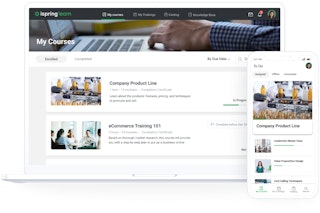Screens in the Classroom: An Educational Ally for the 21st Century, Not an Enemy
The debate over screens in the classroom often focuses on its potential to distract students, but the real issue lies in how it’s used. When implemented effectively, digital tools can enhance learning, foster critical thinking, and prepare students for a digital-first world. Instead of banning technology, educators should focus on teaching responsible and productive use, unlocking its full potential to transform education
Debunking the Distraction Myth: Educate, Don’t Restrict
One of the most common arguments against technology in the classroom is its potential to distract students. It’s true that, without proper guidance, some students may veer off into social media or games instead of focusing on their studies. Research by Sana, Weston and Cepeda (2013) confirms that improper use of laptops in class can negatively impact comprehension.
However, banning technology is not the solution. Instead, the focus should be on teaching students how to use these tools responsibly and productively. By incorporating active learning methodologies, educators can foster critical thinking and digital literacy, turning potential distractions into opportunities for engagement.
Technology as a Learning Booster
Scientific evidence strongly supports the idea that well-implemented technology enhances academic performance. A comprehensive meta-analysis by Tamim et al. (2011) found that students who use technology in their learning achieve better results than those who don’t. Similarly, John Hattie (2009) highlights how the immediate feedback provided by digital tools significantly improves knowledge retention and understanding.
Adaptive learning systems, for instance, are a game-changer. These platforms tailor educational content to each student’s pace and needs. Research by the rand corporation (Pane et al., 2014) shows that such technologies have led to significant academic improvements, particularly among students facing learning challenges.
Preparing Students for a Digital Future
We live in a digital-first world, and ignoring this reality does a disservice to students. The OECD has repeatedly emphasized that digital literacy is a critical skill in today’s society. Banning technology in the classroom not only deprives students of valuable tools but also leaves them at a disadvantage in a job market that increasingly demands technological proficiency.
The real challenge in education isn’t the presence of technology but how it’s used. Rejecting it outright means turning our backs on a resource with immense potential to transform learning. Instead, we must focus on equipping students with the skills to use technology intelligently and responsibly. The question isn’t whether technology belongs in the classroom, but how we can harness its full potential to enrich education.
References
- Hattie, J. (2009). Visible learning: A synthesis of over 800 meta-analyses relating to achievement. Routledge. https://doi.org/10.4324/9780203887332
- Organisation for Economic Co-operation and Development (OECD).(2021). The digital transformation of education: Connecting schools, empowering learners. OECD Publishing. https://doi.org/10.1787/9789264313835-en
- Pane, J. F., Steiner, E. D., Baird, M. D., & Hamilton, L. S. (2014). Continued progress: Promising evidence on personalized learning. RAND Corporation. https://doi.org/10.7249/RR1365
- Sana, F., Weston, T., & Cepeda, N. J. (2013). Laptop multitasking hinders classroom learning for both users and nearby peers. Computers & Education, 62, 24–31. https://doi.org/10.1016/j.compedu.2012.10.003
- Tamim, R. M., Bernard, R. M., Borokhovski, E., Abrami, P. C., & Schmid, R. F. (2011). What forty years of research says about the impact of technology on learning: A second-order meta-analysis and validation study. Review of Educational Research, 81(1), 4–28. https://doi.org/10.3102/0034654310393361
About the author
About EdTick
EdTick is a platform that helps educational institutions connect with academic software. Join our Beta program and help us shape the future of educational technologies!


